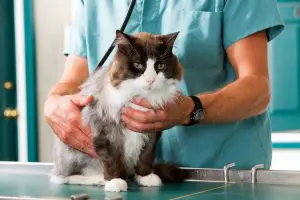It’s also important to be aware that cats nearly always breathe through their nose, so if your cat is panting or breathing through their mouth, it’s a sign they are either extremely stressed, or really struggling to breathe.
Mon – Fri: 6:00 PM – 8:00 AM Sat 12:00 PM to Mon 8:00 AM 24 hours on Holidays
 When your pet starts exhibiting open-mouth breathing, you more than likely will panic and take them to an emergency vet. You might not know what to expect or what the veterinarian will say. At Animal Emergency Care of Braselton, we see many cases of open-mouth breathing and not all of them are serious events. This particular symptom could mean everything from overexertion to a serious emergency.
When your pet starts exhibiting open-mouth breathing, you more than likely will panic and take them to an emergency vet. You might not know what to expect or what the veterinarian will say. At Animal Emergency Care of Braselton, we see many cases of open-mouth breathing and not all of them are serious events. This particular symptom could mean everything from overexertion to a serious emergency.
If your cat breathes with their mouth open after playing hard, it’s normal and nothing to worry about. This is merely overexertion, identical to what would occur in a person. Over time, the symptom will go away, so there’s no need to be concerned. You may notice that your pet becomes out of breath easily if they are overweight.
It’s true that cats can get colds just like people do. Your cat’s breathing difficulties could indicate an upper respiratory infection. The symptoms of open-mouth breathing could include congestion, frequent coughing or sneezing, discharge from the eyes or nose, fever, appetite loss, or dehydration.
Even if the cat didn’t have asthma when they were born, it’s still possible that the animal breathing with their mouth open has the disease. In cats, asthma typically appears between the ages of two and seven. Your pet may cough, wheeze, or breathe laboriously in addition to opening their mouth. In extreme circumstances, your cat may develop cyanosis, which is characterized by dark gray or blue tongue and gums.
It is still possible for your cat to acquire lung cancer even though they do not smoke. The animal may breathe quickly or with his or her mouth open. Pain may be a sign of lung cancer in your cat. It’s possible that your pet lacks appetite or energy. Your cat may experience weight loss or recurrent fevers. It’s possible for your pet to cough up blood.
Your pet may breathe with their mouth open if they have pulmonary edema, a condition that coexists with heart failure. Additionally, your pet can be having breathing difficulties or a dry, hacking cough. Your cat may exhibit congestion due to fluid retention in their lungs. Wheezing is a common symptom of pulmonary edema. It’s possible that your pet will feel lethargic and unable to play or exercise, especially for extended periods of time. An additional indication of this specific illness is appetite loss. The condition is chronic and requires treatment from a veterinarian. It might even result in a serious pet emergency that calls for a veterinarian’s quick attention.
Open-mouth Breathing in Cats–What Does It Mean?
Cats may only normally breathe through their mouths after engaging in strenuous exercise. Cats use their tongue, mouth, and lungs to accelerate the evaporation of bodily fluids in order to stay cool. The quickest method for cats to lower their body temperature is through mouth breathing. In the event that your cat exhibits signs of agitation, foaming at the mouth, or labored breathing while using its mouth, your Braselton emergency care veterinarian strongly advises cat owners to have their pet examined and treated as soon as possible.
FAQ
Can cats breathe in their mouth?
Can cats breathe through their mouth if their nose is blocked?
What does a normal cat breathing look like?
How should cats breathe when sleeping?